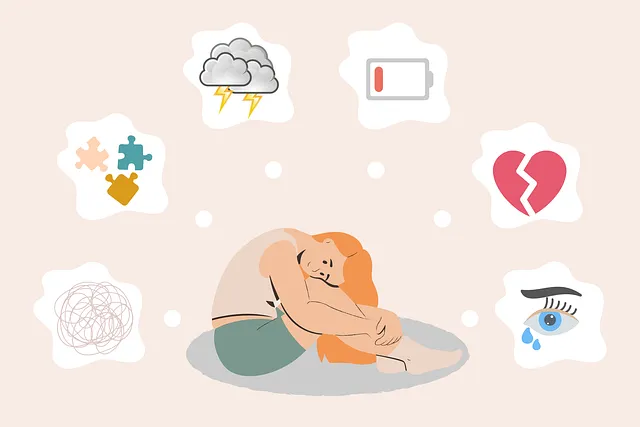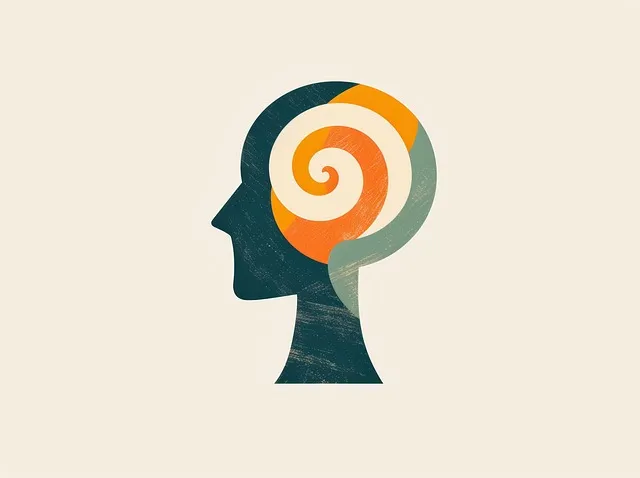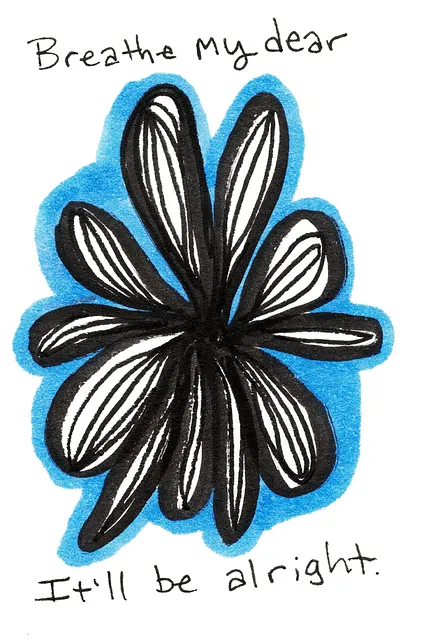Centennial Kaiser Permanente psychiatry offers comprehensive anxiety management through a multi-faceted approach. Recognizing symptoms, understanding triggers, and providing self-awareness tools are key initial steps. Cognitive Behavioral Therapy (CBT) targets negative thought patterns, while mindfulness practices promote present-moment awareness to reduce stress. Lifestyle changes emphasizing exercise, nutrition, and sleep are integrated into care. The department also educates the community through programs aimed at breaking stigma. Their expert team combines evidence-based therapies with cultural sensitivity for personalized anxiety management, empowering patients to lead fulfilling lives.
Anxiety is a common yet overwhelming experience that affects millions. Understanding its symptoms and causes is the first step towards managing it effectively. This article explores various anxiety management techniques, from cognitive behavioral therapy (CBT) to mindfulness practices, lifestyle modifications, and professional support at Centennial Kaiser Permanente Psychiatry. Each approach offers unique strategies for navigating anxiety and reclaiming mental well-being.
- Understanding Anxiety: Symptoms and Causes
- Cognitive Behavioral Therapy (CBT): A Powerful Tool
- Mindfulness and Meditation Techniques for Calmness
- Lifestyle Changes for Better Mental Health
- Professional Support at Centennial Kaiser Permanente Psychiatry
Understanding Anxiety: Symptoms and Causes
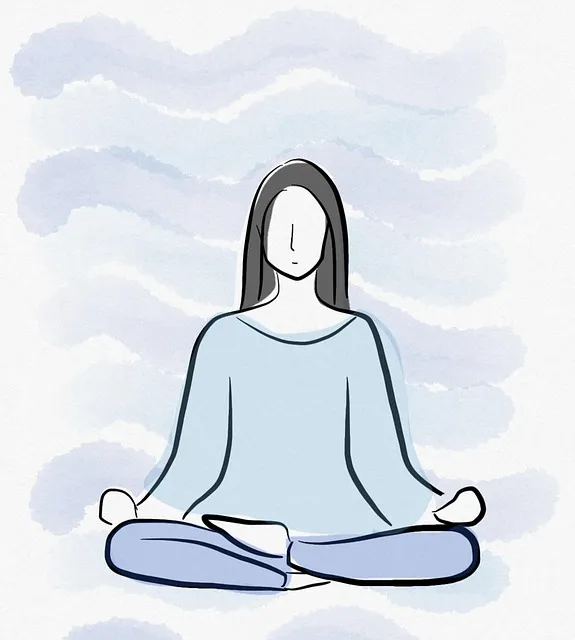
Anxiety is a common experience that can range from mild discomfort to debilitating distress. Recognizing its symptoms and understanding its causes is a crucial first step in managing it effectively. At Centennial Kaiser Permanente psychiatry, our experts emphasize the importance of identifying individual triggers and unique manifestations of anxiety. Symptoms may include rapid heartbeat, excessive sweating, difficulty concentrating, restlessness, and feelings of dread or panic. These physical and emotional signs can significantly impact daily life, affecting work performance, relationships, and overall well-being.
Several factors contribute to the development of anxiety disorders. Stressful life events, genetic predisposition, brain chemistry imbalances, and even certain medical conditions can play a role. Self-awareness exercises and stress management workshops organized by our psychiatry department aim to empower individuals with tools to recognize and manage these triggers. Boosting confidence through targeted interventions is another strategy that helps patients confront anxiety head-on, enabling them to lead more fulfilling lives.
Cognitive Behavioral Therapy (CBT): A Powerful Tool

Cognitive Behavioral Therapy (CBT) is a powerful tool in the arsenal against anxiety disorders, offered by experts at Centennial Kaiser Permanente psychiatry. CBT focuses on identifying and changing negative thought patterns and behaviors that contribute to anxiety. By understanding the connection between thoughts, feelings, and actions, individuals can learn to challenge and reframe unhelpful thoughts, leading to a significant reduction in anxious symptoms.
This evidence-based approach empowers patients with empathy building strategies and mind over matter principles, enabling them to take control of their mental wellness. Through structured guidance in mental wellness journaling exercises, CBT helps individuals track their progress, gain insights into their triggers, and develop effective coping mechanisms. The result is a more balanced perspective, enhanced resilience, and improved overall quality of life.
Mindfulness and Meditation Techniques for Calmness
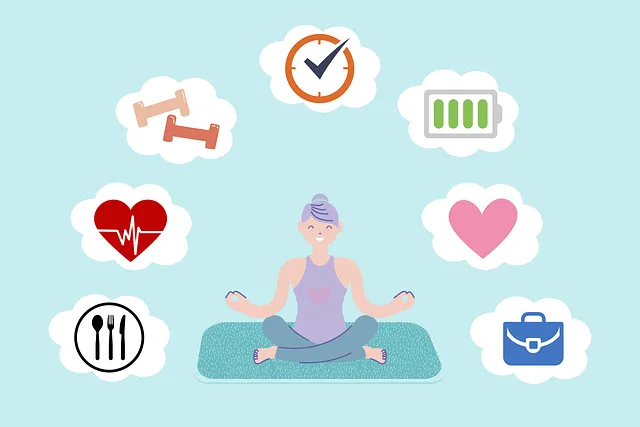
Mindfulness and meditation are powerful tools that have gained prominence within the mental health landscape, including at Centennial Kaiser Permanente psychiatry services. These ancient practices focus on training the mind to be fully present in the current moment, thereby reducing anxiety and stress. Through regular practice, individuals can learn to observe their thoughts and emotions without judgment, fostering a sense of calm and clarity.
The integration of mindfulness into daily routines, such as mindful breathing exercises or body scans, can significantly enhance one’s ability to manage anxiety. Mental health professionals often incorporate these techniques in their Risk Management Planning as part of a comprehensive approach to patient care. By teaching patients stress reduction methods like meditation, healthcare providers empower them to take control of their mental well-being. Additionally, engaging in regular mindfulness practices can be a key component of Mental Health Education Programs Design, equipping individuals with valuable tools for lifelong anxiety management.
Lifestyle Changes for Better Mental Health

At Centennial Kaiser Permanente, our dedicated psychiatry team emphasizes the power of lifestyle changes as a foundational step in anxiety management. Incorporating regular physical activity, balanced nutrition, and adequate sleep can significantly impact mental health and overall well-being. These simple yet effective strategies help regulate mood, reduce stress, and improve resilience to anxiety triggers.
Beyond individual practices, we promote community engagement through Public Awareness Campaigns Development and Mental Health Education Programs Design. By fostering open conversations about anxiety and mental wellness coaching programs, we aim to break down stigma and encourage early intervention. This collective approach ensures that individuals have access to support systems and resources tailored to their needs, ultimately fostering a healthier and more supportive environment for managing anxiety effectively.
Professional Support at Centennial Kaiser Permanente Psychiatry

Centennial Kaiser Permanente Psychiatry offers a range of professional support services for anxiety management. Their team of experienced mental health professionals is dedicated to providing personalized care that addresses individual needs. The clinic recognizes the importance of emotional regulation and cultural sensitivity in mental healthcare practice, ensuring every patient receives treatment tailored to their unique background and experiences.
Through various therapeutic approaches, Centennial Kaiser Permanente Psychiatry helps individuals develop effective coping strategies and self-care practices to manage anxiety symptoms. They foster a safe and supportive environment where patients can explore underlying causes, learn mindfulness techniques, and gain insights into their emotional responses. By combining evidence-based treatments with compassionate care, the clinic enables patients to take control of their mental well-being and lead fulfilling lives.
Anxiety management is a multifaceted journey, and with the right tools, it’s a path that can be navigated effectively. From understanding the symptoms and causes of anxiety to adopting evidence-based therapies like Cognitive Behavioral Therapy (CBT) and mindfulness practices, individuals now have an array of resources at their disposal. Lifestyle modifications play a significant role in fostering mental well-being, and seeking professional support from renowned institutions like Centennial Kaiser Permanente Psychiatry ensures access to specialized care. By combining these strategies, one can cultivate resilience against anxiety and enhance overall quality of life.
